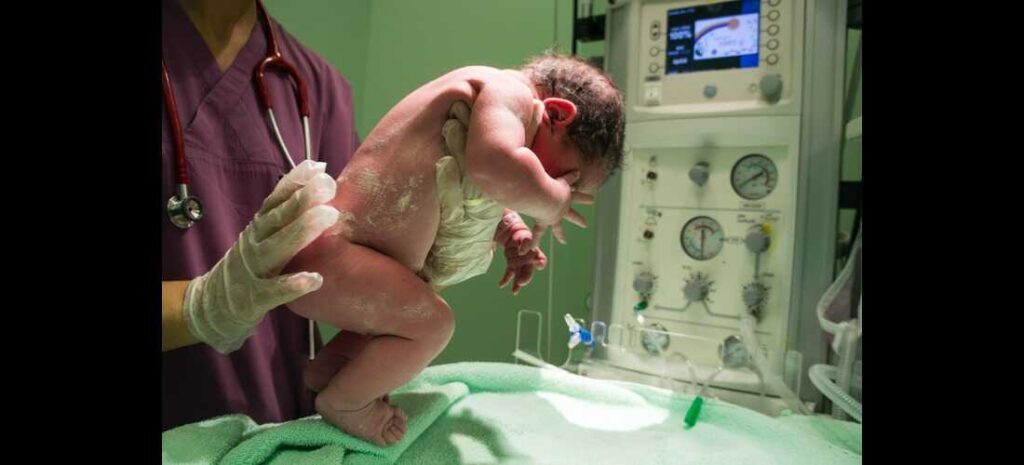The Medical Director of Federal Medical Centre, Ebute Metta, Dr Adedamola Dada has revealed that the hospital is recording an increase in patients with infertility.
Stating that the number of people with infertility was increasing daily, the MD stressed that having an In vitro fertilisation centre in government hospitals was one of the best ways to tackle the growing health concern.
The World Health Organisation described infertility as a disease of the male or female reproductive system defined by the failure to achieve a pregnancy after 12 months or more of regular unprotected sexual intercourse.
The global health organisation explained that infertility affects approximately one in every six people of reproductive age worldwide.
Identifying abnormalities of the ovaries, uterus, fallopian tubes, and the endocrine system, among others as factors responsible for infertility in females, WHO said infertility in males is most commonly caused by problems in the ejection of semen, absence or low levels of sperm, or abnormal shape (morphology) and movement (motility) of the sperm.
Speaking exclusively with PUNCH Healthwise, Dada lamented that IVF which is one of several techniques available to help people with fertility problems have a baby was too expensive and not accessible for average Nigerians battling the challenge.
The physician, however, said the medical centre would crash the price of the procedure for the large volume of patients coming to the institution daily because of infertility.
According to the National Health Service, IVF is one of several techniques available to help people with fertility problems have a baby.
During IVF, an egg is removed from the woman’s ovaries and fertilized with sperm in a laboratory. The fertilized egg, called an embryo, is then returned to the woman’s womb to grow and develop.
He said the IVF centre, which is part of the new clinical building built by the centre, would help more Nigerians to have access to IVF.
He said, “As a hospital administrator, what I am seeing is that those figures are going up. As a government hospital, we need to respond to it.
“And our response to that is to set up the IVF center where we can use the economy of scale, the economy of volume to drive down the cost and ensure that ordinary Nigerians can benefit from the services.
“We are a hospital whose decisions are data-driven. One of the things that we found out from the data that is coming out is that we have a large load of patients who have these challenges (infertility).
“So, working on that, we have discovered that even if only 50 percent of the patients that we have who have these challenges advance to the level of seeking treatment via IVF, we will be able to hopefully crash the cost of IVF in the country by almost 50 percent. If we can do that, we are a government organization; it, therefore, means that the government has been able to reduce the cost using the concept of economic volume.
“We have more volume. And because we have more volume and we are treating more patients, we’re going to be able to get the consumables and the inputs at a better rate than those who are doing it outside, and then we’ll be able to crash the cost.
“The estimate from the data that we are having is that at the end of every year, we should be able to do between 300 to 500 cycles. That is what our data is saying.
But even if what we’re able to do is 200 to 300 cycles, we still will be able to break even. And we are hopeful that we should be able to substantially reduce the cost so that the average ordinary Nigerian can be able to afford this care.”
On how best the government can eradicate quacks in IVF treatment; Dada maintained that making healthcare accessible to all Nigerians without making money important during the point of need would force fake healthcare providers to retrace their steps.
“One of the major things that we need to do and which I know that the government is doing is to ensure that people have access to health care through the national health insurance scheme. I am sure you are aware that the national health insurance scheme has been made compulsory for all Nigerians. So, there is access.
“Once access is created and people don’t have to pay at the point of need, you just find out that fewer people would approach these untrained hands for their care because evidence abounds that usually what happens with this untrained hand is that they even complicate problems.
“It is not just IVF care that quacks are getting into. Quacks are getting into very many spheres of healthcare delivery chains and services. If you are looking at Ophthalmology, quacks are getting into ophthalmology practice. Quacks are getting into orthopedics practice. I’m sure you have heard of the traditional bone centers. Quacks are getting into delivery services, they’re getting into pediatrics, and they’re getting into everywhere.
“But once we create access, which this government is doing, we make payment at the point of need, not compulsory as it is today. Then you find out that many more persons would approach the orthodox healthcare services and just naturally this other group would go down,” he concluded.




